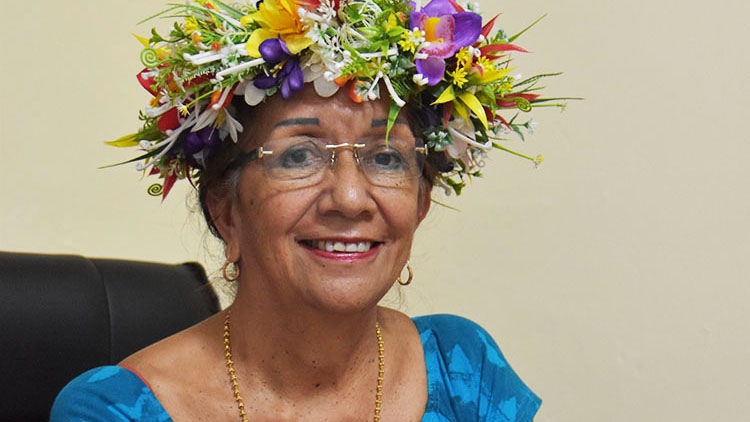NCEA results reflects lack of creativity and ambition: Opposition
Wednesday 22 January 2025 | Written by Talaia Mika | Published in Education, National

Opposition leader Tina Pupuke Browne. 21022332
Opposition leader, Tina Browne has criticised government’s response through the Ministry of Education, regarding the NCEA dropping results saying it reflects a ‘worrying’ lack of creativity and ambition.
The Ministry of Education on Monday, revealed preliminary results for the 2024 NCEA exams which showed a 66 per cent pass rate across all levels, with the MOE remaining silent on the Level 1 pass rate.
Secretary of Education Owen Lewis, said 78 per cent of students achieved NCEA Level 2, and the NCEA Level 3 success rate stands at 76 per cent overall and did not provide the preliminary pass rate for Level 1.
However, since the average pass rate across all levels is 66 per cent, the implied pass rate for Level 1 would be 44 per cent.
In response to queries from this newspaper, Browne said despite the ministry acknowledging these declines and blaming systematic changes, their reaction is ‘defeatist’ and ‘symptomatic’ of a government that has failed to prepare adequately for these challenges.
“Instead of planning proactively, they have adopted a reactive approach, leaving students, teachers, and schools unsupported in the face of reforms like the new literacy and numeracy standards,” she added.
“The claim that education is devalued because young people prefer mining or manual labour over academic careers is not only simplistic but also reflects a government seeking to shift blame onto students and their families.”
According to Browne, this preference in reality goes to show that the government does not have the ability to connect education with meaningful career opportunities.
She pointed to countries like Singapore and Germany as examples of countries that have showcased that aligning education systems with diverse economic pathways.
These include academic and vocational careers, as well as fostering respect for all professions and builds and adaptable workforce.
“In contrast, the government here has failed to inspire confidence in education as a pathway to prosperity,” she added.
“As Leader of the Opposition, I propose a clear, practical, and proven alternative. To better link academic achievement to career opportunities, we will implement an Education-to-Career Pathway Programme, creating partnerships with industries such as renewable energy, technology, and agriculture, while continuing to support traditional trades.
“This will include internships, apprenticeships, and scholarships, with clear metrics to measure success, such as employability rates and student participation in these initiatives.”
To enhance foundational literacy and numeracy, Cook Islands will implement global best practices, drawing inspiration from Finland’s small-group teaching techniques and Singapore’s comprehensive teacher training programs according to Browne.
These approaches she highlights, underscores the importance of early intervention and tailored instruction – Additionally, it will reduce class sizes and administrative tasks, enabling teachers to concentrate on their students' needs.
She further emphasised that unlike the government's ineffective reforms, the curriculum changes will be collaborative and community-driven. Policymakers will engage with teachers, parents, and local leaders to ensure reforms address the specific needs of Cook Islands communities.
Another suggestion includes a gradual implementation which should also help schools adjust, with support from a National Education Advisory Council that will oversee progress and hold all parties accountable.
“The government's current policies lack the innovation and vision needed to tackle contemporary challenges. By not aligning education with economic opportunities, they have left students believing that academic achievement is pointless,” Browne said.
“Our approach guarantees that every student has access to a valuable education, viable career paths, and the chance to succeed. It's time for leadership that recognizes education as the foundation of a thriving, sustainable Cook Islands.”
Also read: 66 per cent pass rate














































